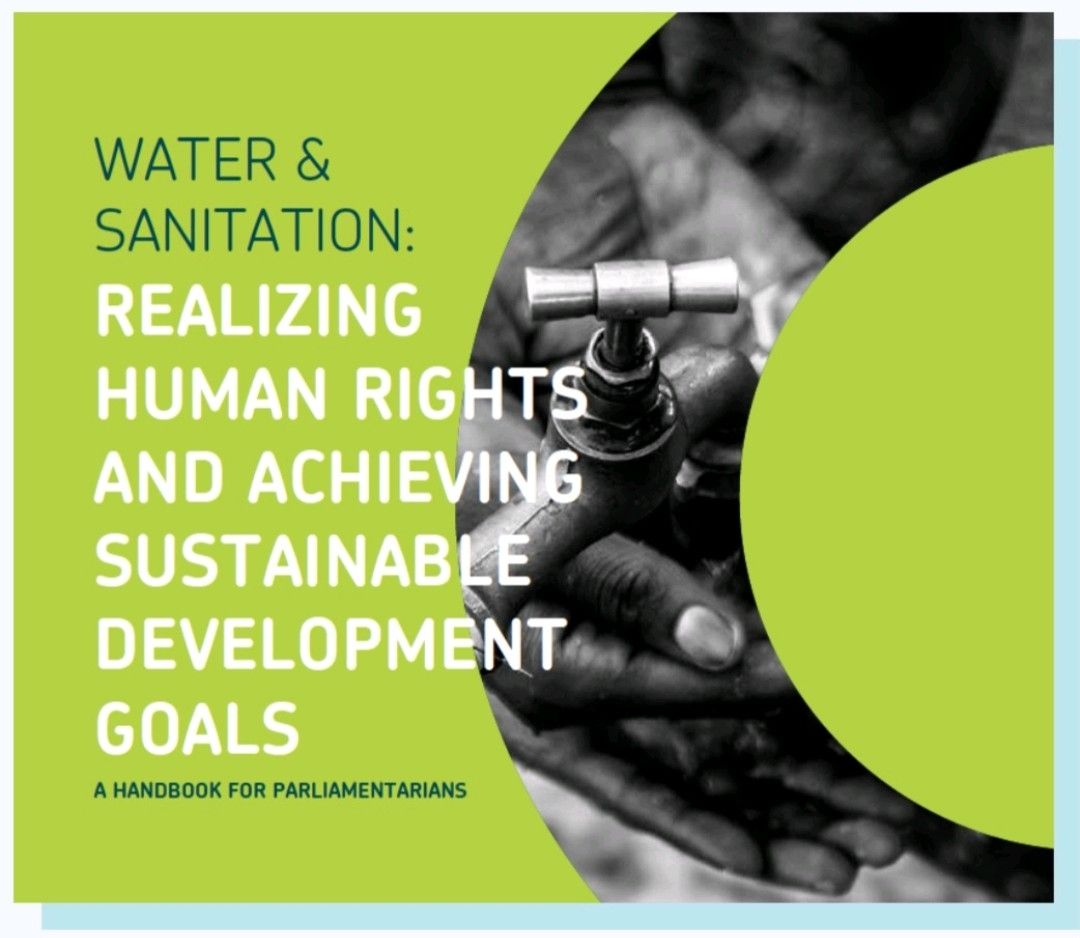
Introduction
Parliaments and parliamentarians are critical in ensuring accountable, participatory, transparent governance necessary for inclusive and sustainable development.
However, this critical role faces numerous challenges, but how can parliamentarians weather the challenges they face to deliver inclusive water and sanitation services for people and communities and achieve sustainable development goals (SDG) by 2030?
Sanitation and Water for All have launched “Water & Sanitation: Realizing Human Rights and Achieving Sustainable Development Goals, a Handbook for Parliamentarians” to contribute to the understanding of Parliamentarians on water, sanitation and the human rights elements of both and inspire further action on water and sanitation.
Sanitation and Water for All (SWA) is the United Nations-hosted partnership of governments, donors, civil society organizations and other development partners working together to coordinate high-level action, improve accountability and use scarce resources more effectively.
SWA objectives are to build and sustain political will to eliminate inequalities in water, sanitation and hygiene, champion multi-stakeholder approaches towards achieving universal access to service and rally stakeholders to strengthen system performance and attract new investments.
The Essence of the Handbook
This handbook aims to provide parliamentarians with information and inspiration to help them fulfil their responsibilities to ensure adequate water and sanitation services for their constituents and communities.
It contributes to their understanding of the legal, political, and programmatic implications of realizing the human rights to water and sanitation and achieving the Sustainable Development Goals by 2030.
Major Highlights from the Handbook
Parliamentarians have several key roles and functions, and each of them helps promote and protect human rights to water and sanitation.
Their key roles are as follows;
- Representing constituents and communities
Parliamentarians’ most significant role is to engage with their constituents and communities, which is crucial to enable effective legislation, resource allocation, and advocacy within parliamentary processes.
- Legislating
Parliamentarians are responsible for drafting, reviewing, and passing legislation. Legislating is key in ensuring that laws further the realization of the human rights to water and the implementation of the SDGs.
- Oversight of the executive
Parliamentarians monitor and oversee the executive branch of government. They ensure that they comply with international, regional, and national legislation, policies, and commitments relating to water and sanitation service provision
- Approving and monitoring national budgets
Parliamentarians also ensure that resources are available to comply with legislation, regulations, policies, and plans. This is critical in realizing the human rights to water and sanitation and achieving the SDGs.
Using parliamentary structures and tools
The handbook explores how parliamentarians can use several parliamentary structures and tools to draw attention to the importance of water and sanitation services.
These structures include parliamentary committees, public inquiries and hearings, parliamentary motions and debates, written or oral parliamentary questions, and multi-stakeholder initiatives promoting water and sanitation, but they vary by country.
Cases studies from Nigeria
For instance, in Nigeria, two SDG select committees were established in 2017 to strengthen and prepare parliamentarians in their legislative and oversight roles to achieve the SDGs.
The Senate Committee for implementation of the SDGs also invited stakeholders, including the private sector and civil society, to discuss the relevant legislation for the realization of the Clean Nigeria program.
Also, the Ministry of Finance and Water Resources supported the creation an association for organized private sector in water, sanitation and hygiene in Nigeria (OPSWASH), and their objective is to generate commitment from private bodies to support the nation-wide Clean Nigeria campaign. This resulted in the development of tax incentives for private sector to support the presidential commitment to end open defecation in the country by 2025.
Conclusion
Parliamentarians can use their roles of representation, legislating, oversight, and budget scrutiny to address the bottlenecks hindering the implementation of the SDGs and the realization of the human rights to water and sanitation in their countries.
For more detailed information, download the handbook here: https://lnkd.in/eHUM5E9Y
Leave a Reply